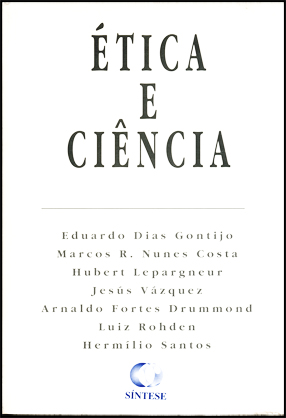O SENTIDO DA DIALÉTICA NA EPISTEMOLOGIA DE G. BACHELARD
Palavras-chave:
Dialética, Epistemologia, Obstáculo, Retificação, História.Resumo
Face à dialética de Hegel, a dialética bachelardiana não tem nenhum sentido ontológico e não afirma ou pressupõe qualquer unidade-totalidade do real. Trata-se de um jogo do espírito, no contato com a experiência, que constitui a história conceitual das ciências. É uma história da dialética dos obstáculos e dos atos epistemológicos que, pela retificação progressiva dos erros, constitui a dinâmica infindável do progresso das ciências. Conseqüentemente, a dialética traduz em Bachelard a marcha do espírito em direção ao conhecimento da natureza. Tal processo configura uma forma de racionalismo constituído por sistemas racionais simplesmente justapostos. Na perspectiva hegeliana, este processo corresponderia a uma dialética do entendimento.
Abstract: Compared to Hegel's dialectics, Bachelard's has not an ontological meaning and does not say and has not got any presupposition on the unity-totality of the real. It is the game of the spirit, in contact with experience, which constitutes a conceptual history of science. It is a history of dialetics on the epistemological obstacles and acts that, by the progressive correction of mistakes, constitutes the endless dynamics of science progress. Thus, dialectics means, in Bachelard's work, the spirit movement toward the knowledge of nature. Such a process is a form of rationalism constituted by rational systems simply juxtaposed. In the Hegelian perspective, such a process would correspond to dialectics of understanding.


















